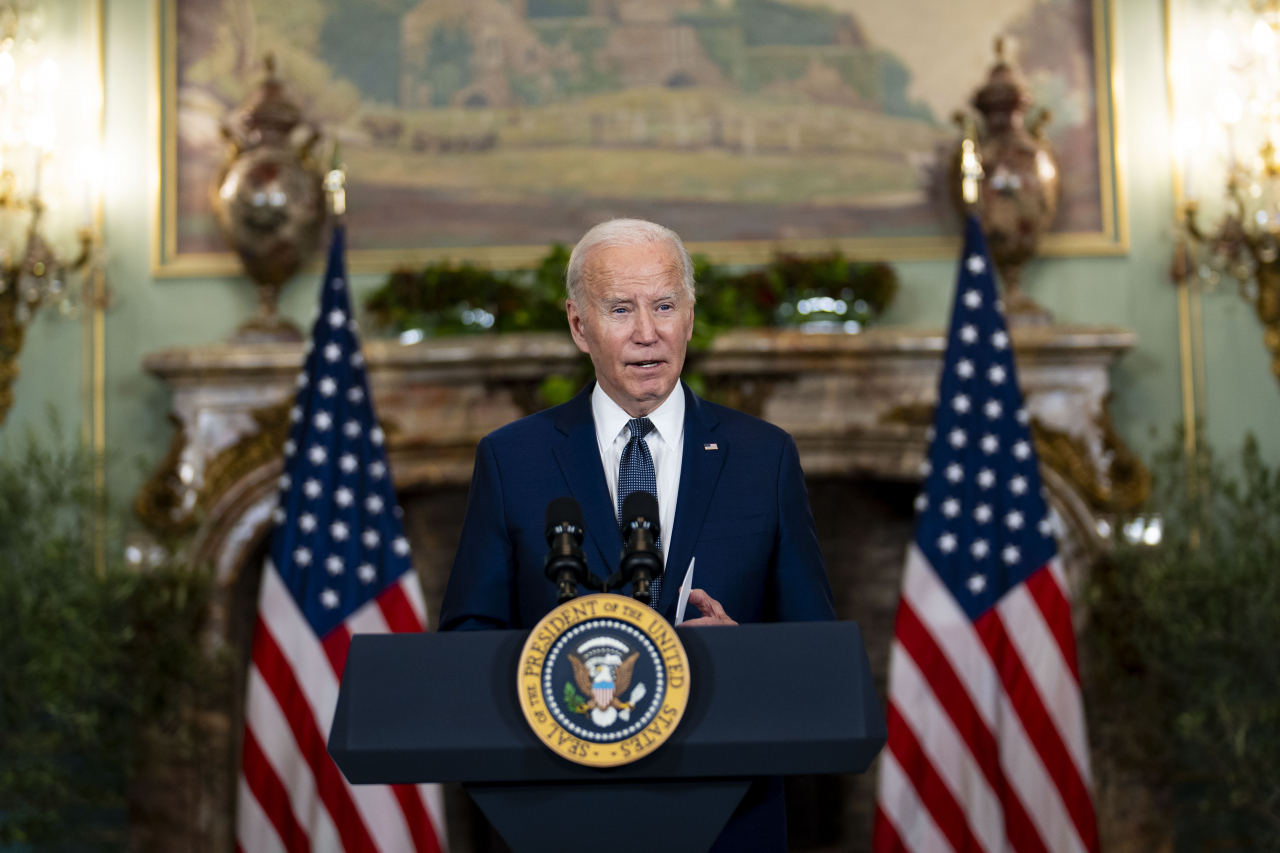[News Analysis] US-China talks leave room for Yoon
By Choi Si-youngPublished : Nov. 16, 2023 - 15:32

The less contentious tone struck at talks Wednesday between US President Joe Biden and Chinese President Xi Jinping is a sign South Korea could inject fresh momentum for better Seoul-Beijing ties, experts said as the two Asian neighbors look to move past the US-China rivalry.
The four-hour dialogue made “real progress,” Biden said of the meeting on the sidelines of the Asia-Pacific Economic Cooperation summit in San Francisco. The conversation, the first in a year, led to resuming military communication, combatting fentanyl and opening dialogue over risks from artificial intelligence.
Washington will manage competition with Beijing responsibly to avoid veering into “conflict or accidental conflict,” Biden said at a press conference Wednesday, the first day of the three-day APEC summit.
Experts say restoring military hotlines and cooperating on preventing unwarranted conflict indicates the two countries want to put their ties back on track, a pursuit that opens room for a move for Seoul, a US ally that heavily relies on Washington’s security support.
“If the US-China relationship is on good footing or close to that, South Korea has a better chance to engage China, and I see that opening for now,” said Kang Jun-young, a professor of Chinese studies at Hankuk University of Foreign Studies in Seoul.
“Discussing business and economic cooperation with Beijing -- be it chips or batteries, which Seoul is really good at -- is what the Yoon administration should go after to revitalize somewhat lukewarm ties,” Kang added, noting nonpolitical issues are where the two Asian neighbors are more likely to see eye to eye.
Since taking over in May last year, Yoon Suk Yeol’s government has been doubling down on knitting closer ties with the US, Seoul’s top security partner. Critics label the push as sidelining China, Seoul’s biggest trade partner. Yoon officials have disputed the notion, saying Korea wants to work with China as well.
But the outreach has so far turned out less promising than expected, as Beijing has yet to definitively answer the call by Seoul and Tokyo to resume their three-way leader-level talks. The gathering has been suspended since 2019 over the COVID-19 pandemic and political tensions.
Such a get-together, however, would do little to meaningfully improve Seoul-Beijing ties even if it were to take place, said Choo Jae-woo, a professor of Chinese studies at Kyung Hee University, explaining that three-way deals do not always guarantee a boost in bilateral relations.
Leverage to reel in China, Choo noted, was lost already earlier this year when Korea had equivocated on joining a US-led alliance to ban exporting advanced chipmaking machinery to China. Seoul, home to the world’s two largest memory chipmakers, should have put aside fear of retaliation, like Japan and the Netherlands, Choo added.
“What does Seoul have now that Xi feels incentivized to make the tour and meet with Yoon?” Choo said, referring to a summit that last took place in 2014. To see that happen again, Korea needs greater bargaining power and yet, the upper hand just looks increasingly harder to find at the moment, according to Choo.






![[Weekender] How DDP emerged as an icon of Seoul](http://res.heraldm.com/phpwas/restmb_idxmake.php?idx=644&simg=/content/image/2024/04/25/20240425050915_0.jpg&u=)



![[Music in drama] An ode to childhood trauma](http://res.heraldm.com/phpwas/restmb_idxmake.php?idx=644&simg=/content/image/2024/04/25/20240425050929_0.jpg&u=)








![[Herald Interview] Mistakes turn into blessings in street performance, director says](http://res.heraldm.com/phpwas/restmb_idxmake.php?idx=652&simg=/content/image/2024/04/28/20240428050150_0.jpg&u=20240428174656)
